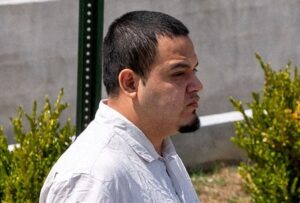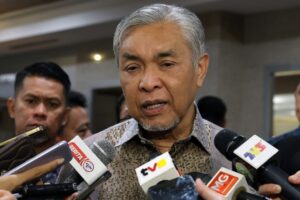(Reuters) -Ruth Weiss may have lived for more than a century, but she never inured herself to injustice.
The anger she felt at the inhumanity she saw around her fuelled her drive to keep writing and challenging oppression during her long, peripatetic life.
Weiss was a prolific author and journalist who bore witness to some of the 20th century’s greatest crimes, from the antisemitism of Nazi Germany to the racism of apartheid South Africa.
“Mere chance took me from near Nuernberg to Johannesburg, to escape the Holocaust and muddle on through life in exile,” she wrote in her memoir, “A Path Through Hard Grass”. “For this is the only permanent thing in my life: that I am a perpetual outsider.”
She has died at the age of 101, said Thomas Jung, the mayor of her native city of Fuerth, on Friday.
‘A SMALL UNWANTED GIRL’
Ruth Loewenthal was born in 1924 in Fuerth, near Nuremberg, the daughter of Richard Loewenthal, a toymaker turned shopkeeper, and Selma (née Cohen), who worked in the shop alongside her husband.
A boy named Heinz was in Ruth’s sister’s class. Ruth’s best friend was called Leah.
Heinz would eventually change his name to Henry and become the United States’ secretary of state – Henry Kissinger. Leah, meanwhile, would be deported to Poland and die in a gas chamber.
A “small unwanted girl in Hitler’s Germany,” as she wrote, Ruth fled with her Jewish family to South Africa in 1936. They arrived just before the Afrikaner government halted Jewish immigration, having realised that although the newcomers had “the right skin”, they had “the wrong religion”.
Apartheid would come to South Africa in 1948, but racial segregation, hatred, and the oppression of Black people and ethnic minorities were already all around her. An hour after Weiss’s mother cradled the baby of her new Black housekeeper, four Afrikaner women dropped by to inform her that it was not the custom to touch Black children.
Weiss found other German exiles and likeminded liberals with whom she could hone her outrage. She fell into journalism – initially ghostwriting articles on behalf of her much older husband, Hans Weiss, an Africa correspondent for German newspapers, whom she later divorced after his infidelity.
But she had found her calling. Journalism suited her enquiring mind and her innate ability to move through all sectors of society and inspire people to confide in her.
Her work followed the liberation movements of southern Africa. Reporting on economic development allowed her to expose rights violations, inequality and sanctions busting.
Declared persona non grata by South Africa and what was then Southern Rhodesia (now Zimbabwe), she worked in London for The Guardian. The job’s long hours were a struggle for her as a single mother of a young son, Alexander, her only child.
In the early seventies she returned with him to Africa, this time to Zambia, working for the Times of Zambia, and occasionally for the BBC and Reuters.
‘COMRADE RUTH’
A return to Germany, to work for news agency Deutsche Welle in Cologne, confronted her with the antisemitism and denial still latent in post-war German society.
She moved to newly-independent Zimbabwe in 1982. It was there that she joined the Zimbabwe Institute for Southern Africa, which brought Black and white South Africans together in clandestine meetings and workshops to talk about a democratic future for the country.
Africans took her seriously despite her sex, she said. As a mature woman she was treated with the respect typically shown to older people on the continent.
“How fortunate I was to have lived through the turbulence in southern Africa in the second half of the 20th century, to have been present at some of the events during that turbulence and to meet several of the actors,” Weiss wrote with typical modesty in her memoir.
She met Nelson Mandela in a friend’s kitchen over soup, before his jailing in 1962. Zambia’s first president Kenneth Kaunda nicknamed her “Comrade Ruth” and told her she was “Zambian in spirit”.
“Fate, chance, an accident of birth, and the drama of history – call it what you will – have woven her life into a pattern belonging specifically to our century, a piece of social history,” wrote South African writer Nadine Gordimer, a friend of Weiss.
In 2005, Weiss was nominated as one of a group of one thousand women for the Nobel peace prize. The Nobel Committee recognised women working quietly and selflessly for peace across the globe.
“I was stunned at the nomination,” Weiss wrote. “After all, the courageous women whose names I knew had served humanity selflessly. They had fought for the rights of women and against abuse such as female circumcision, which caused immense suffering to innumerable women. Others had been jailed for their work.” She didn’t deserve the accolade, she said.
In 2023 South African president Cyril Ramaphosa made her a Companion of the Order of O.R. Tambo, a distinction awarded to eminent foreigners who have shown friendship to the country, for her contribution to the liberation struggle and for shining a light on injustice.
‘I DID WHAT I COULD’
In her later decades she wrote fiction and children’s books, as well as her memoir. This, as well as a new appetite in Germany to confront the Nazi past and hear from its victims, made her a highly sought-after speaker on the violence and brutality she had encountered.
Gordimer described Weiss as modest, compassionate and generous – not for her the big houses and swimming pools of some foreign correspondents and expatriates.
In the Zambian capital Lusaka, “the flat was too small for a dinner party, but fine for a self-service buffet”, Weiss wrote.
“I mixed the guests: government ministers, expatriates, members of liberation movements of different countries, foreign and local journalists. Somehow everyone talked to everyone else.”
Weiss wondered if she should move back to the new South Africa, free of apartheid. In the end she felt that, as an old woman on her own, she would have to live behind security fences, an existence she would not be able to bear.
“But more importantly, I was too old to participate in the reconstruction that was needed. This was a task for the young and vigorous,” she wrote.
Her Nobel nomination described her as waging war with her words.
“I cannot claim that my pen was more powerful than a sword, for in the context of my opposition of racism in all its forms, this would not be correct,” she said in response.
“I can only say, I did what I could, given my circumstances.”
(Editing by Olivier Holmey)






